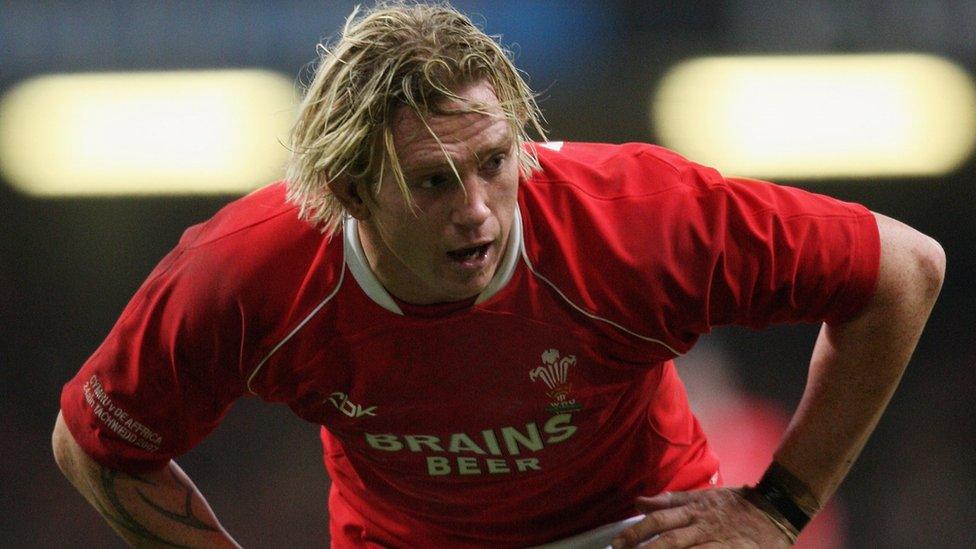Ex-British & Irish Lions stars join brain injury legal action
- Published
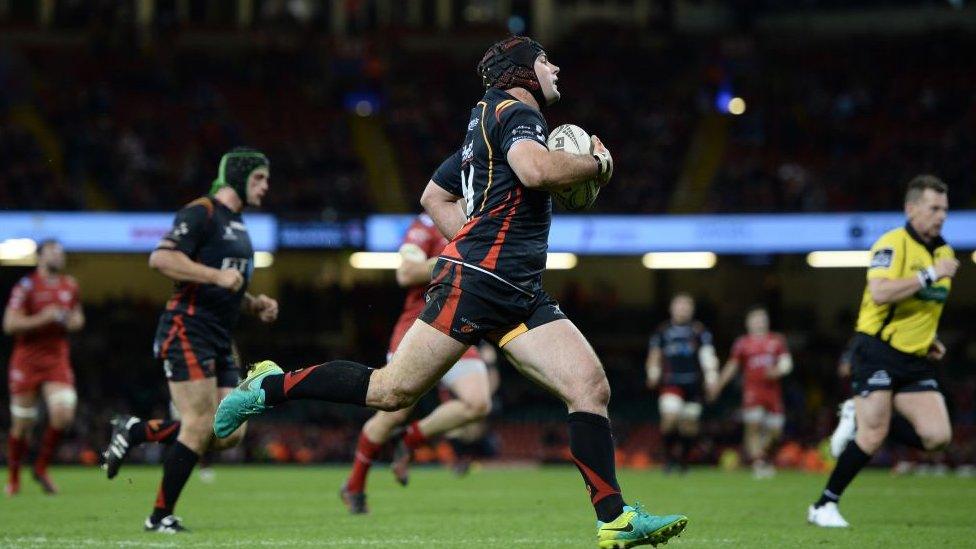
A string of "high profile" players are set to join Adam Hughes in legal proceedings against rugby authorities
More former British and Irish Lions are among those suing rugby authorities for their brain injuries.
The high-profile stars join more than 200 male and female players' action.
Ex-rugby international Lenny Woodard, who has early-onset dementia, said people would be "shocked" when the names were revealed.
World Rugby, the Welsh Rugby Union (WRU) and the Rugby Football Union (RFU) said they strive to support all players.
"At some point the players list will become public and you're going to be shocked at some of the players on there," Pontypool-born Mr Woodard told BBC Wales.
"As far as the UK players are concerned, you're talking British Lions."
He added: "We talk about Ryan Jones, there are players on that level, big names, who are part of the proceedings at the moment, which is a terrible shame as they are struggling as well."
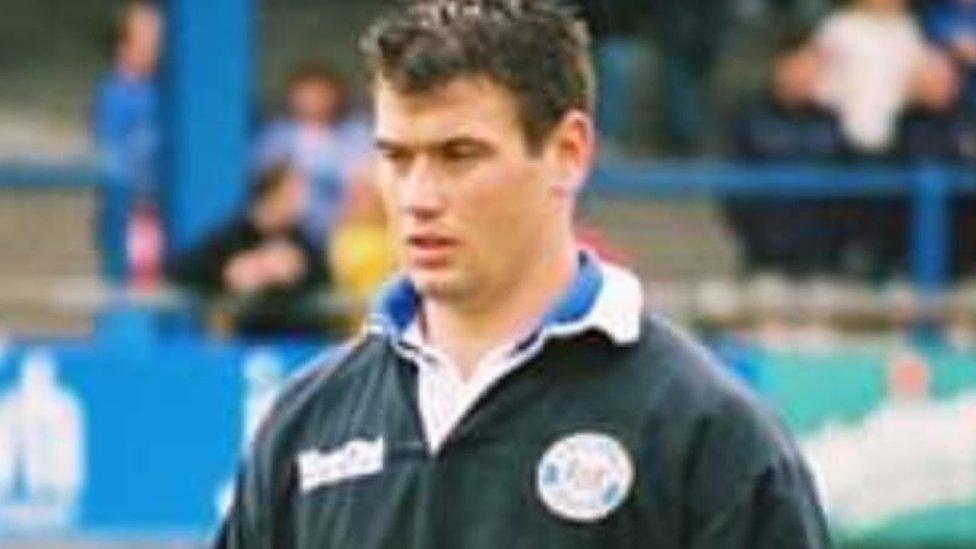
Mr Woodard won five Wales Rugby League caps and played for the Wales union team on their 1998 tour to South Africa
Former British and Irish Lion and Wales captain Ryan Jones revealed in July he had joined the legal action after being diagnosed with early-onset dementia.
Others include former Lion, England international and World Cup winner Steve Thompson and former Wales international Alix Popham.
Mr Woodard said after he last spoke to BBC Wales, other former professionals had contacted him asking for advice because they were suffering with memory loss.
The former dual-code pro said he knew of at least six former Welsh Premiership players from the 1990s who were struggling with memory loss and seeking medical advice.
"I've had formers players who have been frightened to come forward because they don't want their employers to know they are struggling," he said.
"They've worked hard to get where they are in their careers and they don't want their employers to look at them in a negative way because they are struggling with their everyday lives.
"It's more prevalent than I first thought, there's a lot of players struggling."
Lenny Woodard's son accidentally discovered his dad has dementia
Rugby's governing bodies are accused of failing to "protect players from permanent injury".
Solicitors said legal proceedings had been issued for about 160 players, with proceedings for about 70 more expected next year.
Richard Boardman from Rylands Garth, who is representing the players, said about 20 of the 235 ex-professionals had publicly revealed their diagnoses so far.
Mr Boardman said it was the biggest legal action of its kind outside the United States, where the NFL has paid more than £664m to date to former players who developed dementia or concussion-related problems.
'I may have contributed to that'
Mr Woodard said he had been reflecting on the part he may have played in causing injuries due to his physical style of play.
"I wasn't the most talented, but I'd give 100%," he said.
"I was probably as aggressive as they came as far as running at people - but never wanted anyone to be injured."
He recalled a match against Swansea club Bonymaen RFC when he accidentally caught a player "with a high shot" which resulted in a concussion.
"He's now been diagnosed with early onset dementia, and now I've seen the other side of the coin, I feel a little bit responsible for that," he said.
"He's been really nice about it, but I've now got that - I wouldn't say guilt - but that thought process that I may have contributed to that and it's concerning."
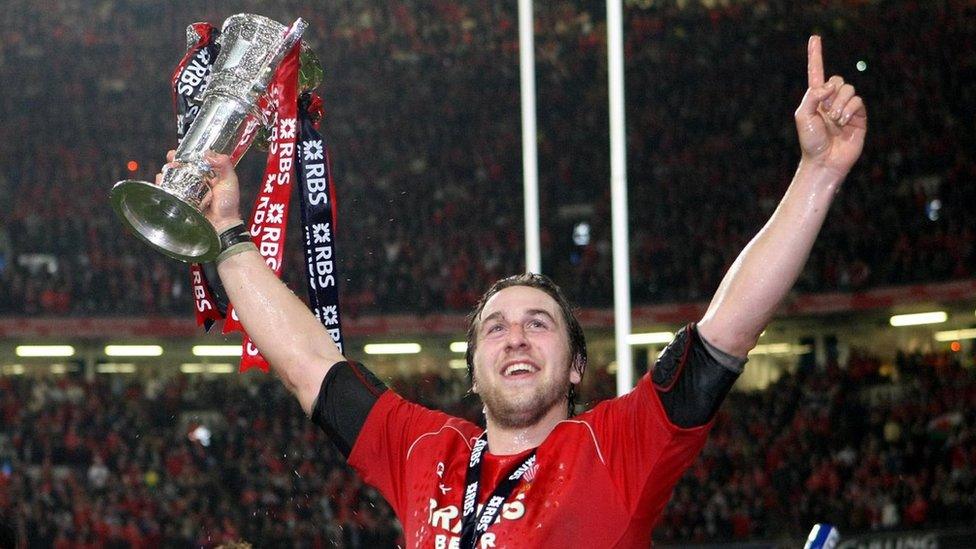
Former Wales captain Ryan Jones is part of the legal claim
Mr Woodard said he was also concerned about how prevalent brain injuries may be in the amateur leagues.
He wants the decision to remove players from a match made by medical professionals at every level of the game.
That medical professional, he said, should not "want to die for the cause, die for the team - because ultimately we might see someone die for the team if these situations aren't managed properly".
"We need to standardise those decisions - there in lies the challenge for World Rugby: to cater for all rugby players of all levels."
Former Wales international prop Peter Rogers, who is currently working as a domiciliary care supervisor while studying for a Masters degree in dementia studies, said that when he played there was a very poor injury culture.
"I had two broken bones in my hand, and I refused to play and train with this injury, and I was ridiculed by management and some former team mates," Mr Rogers, told BBC Radio Wales Breakfast.
"That gives you some sort of insight as to how the injury culture, which is what I believe the group of players are litigating upon... is whether they were treated properly regarding taking [an] injury."
'We care deeply about all players'
In a joint statement, World Rugby, the WRU and the RFU confirmed that on 24 November they received notification requesting an extension to the court deadline to provide full details of players' claims.
It said they "care deeply" about every member and are "saddened by the brave personal accounts" of those struggling.
The statement went on: "We never stand still when it comes to further cementing rugby as the most progressive sport on athlete welfare.
"Rugby is a leader in the prevention, management and identification of head impacts and World Rugby also proactively funds transformational research, embraces innovation and explores technology that can make the sport as accessible, inclusive and safe as possible for all participants.
"Rugby is a sport that supports lifelong health and wellbeing benefits for participants at every level.
"It is loved by millions of current and former players around the globe."
World Rugby, the WRU and RFU said they were unable to comment on the specifics of the legal action while awaiting the full details of the claims.

GAME CHANGERS: Go behind the scenes with Wales women's rugby team
RUCK STARS: Two of the biggest teams in rugby go head to head

- Published25 July 2022
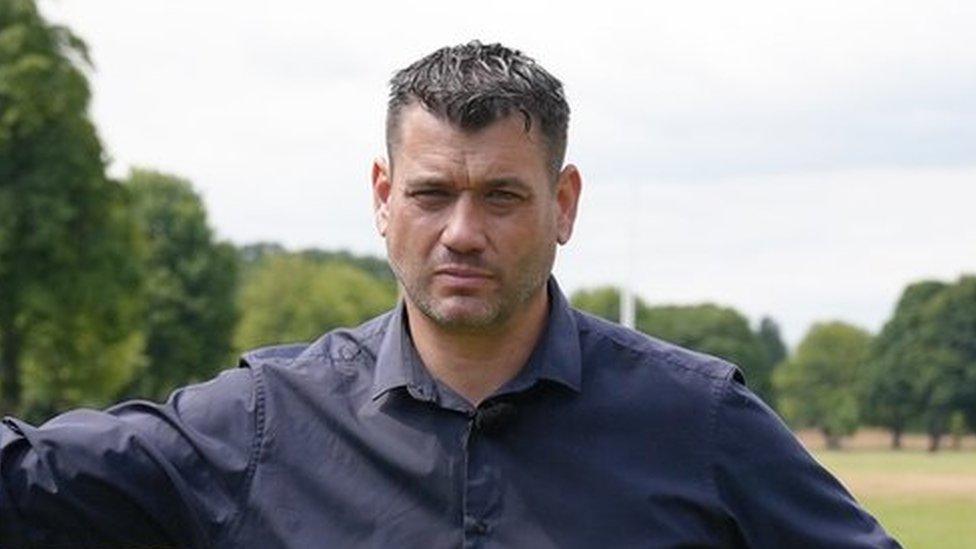
- Published3 May 2022
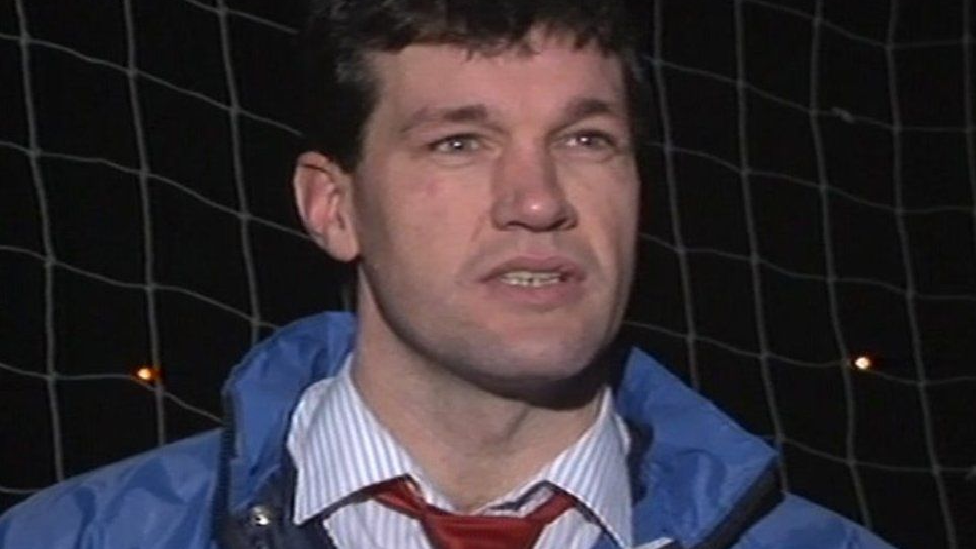
- Published30 November 2022

- Published3 February 2022
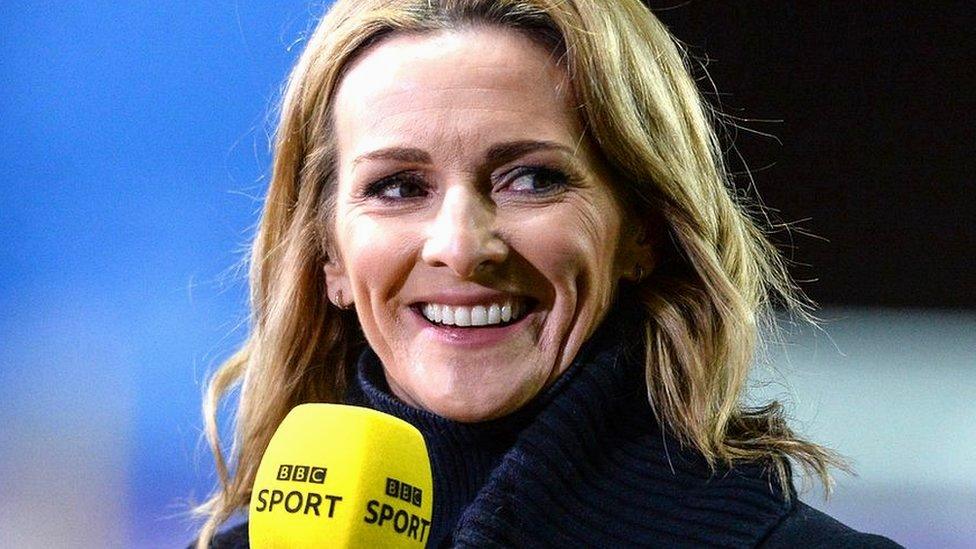
- Published17 May 2021
